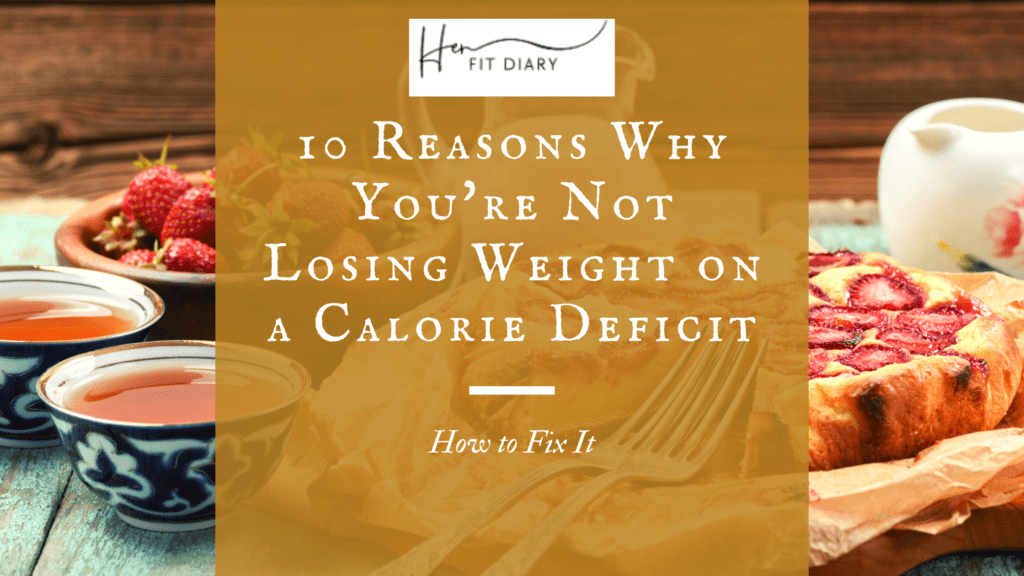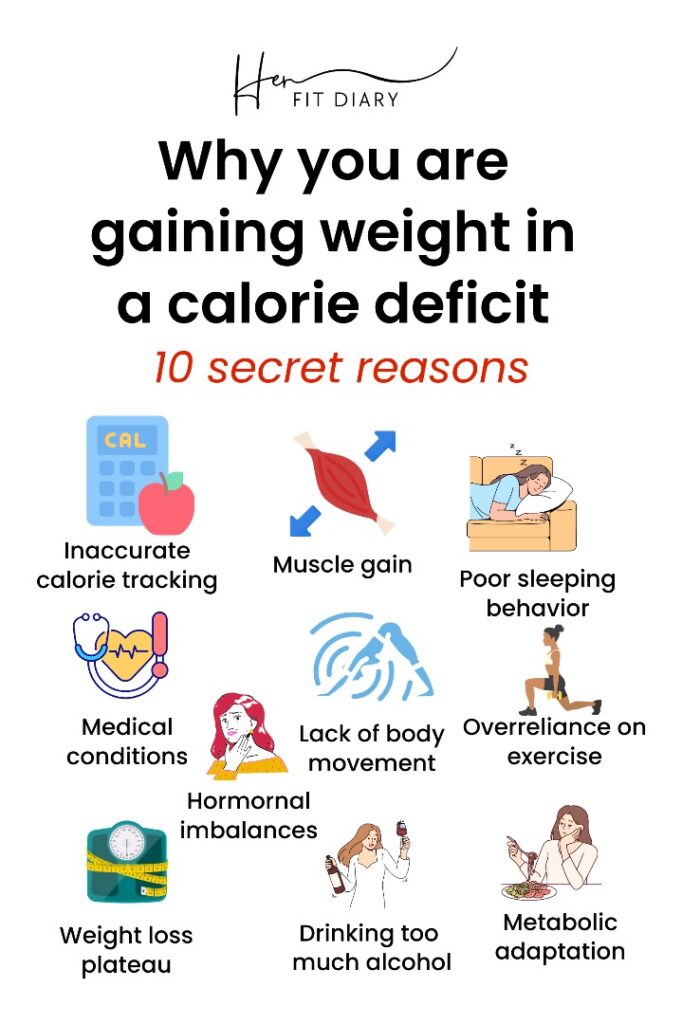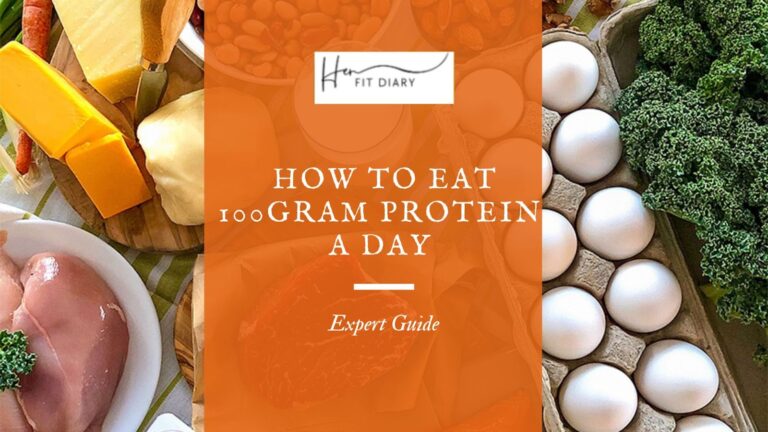
When I started my weight loss journey, I noticed I was gaining weight. So I started doing calorie deficit. Maintained 1500 calories per day.
Thankfully, I losed weight. But to my horror after few weeks, I still gained the weight back.
So if you are like me wondering why you are adding weight even on a calorie deficit, then this article is for you.
So buckle up because what I’m about to share is what has worked for me and countless women I’ have helped’ve coached with weight loss.
How does a calorie deficit work?
The main reason why I was not loosing weight even on a calorie deficit was because I did not understand how calorie deficit work.
I claimed I understood the science in it. But in reality I only knew the surface level.
So let me explain how calorie deficit works so you can follow.
Your body needs a certain amount of energy (calories) each day to function – to keep your heart beating, and your lungs breathing, and to fuel your daily activities. This is your Total Daily Energy Expenditure (TDEE).
When you consume fewer calories than your TDEE, your body doesn’t have enough incoming energy to meet its needs. So, it turns to its stored energy reserves – primarily body fat – to make up the difference. This process of using stored fat for energy is what leads to weight loss.
Lesson: Consume lesser calories your body needs.
For example, if your body needs 2000 calories a day to maintain its current weight (your TDEE), and you only eat 1500 calories, your body will be forced to get 500 calories from your body’s stored fat to meet its energy needs. Over time, this consistent deficit leads to a reduction in your body’s fat stores, resulting in weight loss.
My mistake was, I assumed that I needed to take 1500 calories a day.
Wrong. You need to know the exact calories your body needs.
How many calories should I eat a day to be in a deficit?
The number of calories you need depends on factors like your age, height, weight, activity level, and overall health.
So use this HerFit Dairy free calories calculator to find out the right amount of calories your body needs.
Calorie Deficit Calculator
Enter Your Email to See Your Results
A good starting point is to reduce your daily calorie intake by about 500 calories. This is a moderate process of loosing weight so you can aviod having lots of excess skin.
Why am I still gaining weight on a calorie deficit?: 10 Causes and How to Fix it
Now you know the right number of calories to consume daily, the 1st thing is to make sure you learn how to calculate the calories of any food you are taking. But sometimes, they’re other factor that contribute;
1. Inaccurate calorie tracking:
At some point in my community, I had to ask people to snap and send me the foods they consume in a day. I was shocked to see that people were eating small portions but when I calculated the calories it amounts to 3000kal.
On the other hand, some were eating large and were still eating 2000kal.
So before putting anything in your mouth, you have to calculate the calories.
I advise my students to reduce foods with oil, snacks and soda drinks because these foods quickly increase daily calorie intake.
Again, learn how to eat only 3 square meals….no snacking time.
Again there are some food combinations that you want to stay clear of. For example, protein milkshakes contain a lot of calories, but you have fewer calories if the fruits are in their solid form. For example;
- A banana and protein powder smoothie might contain 300-400 calories while eating a whole banana (about 105 calories) and having a scoop of protein powder with water (about 120 calories) separately would total only 225 calories.
- A fruit and yogurt smoothie could easily reach 350-450 calories, but having a small serving of Greek yogurt (about 100 calories) with a cup of mixed berries on top (about 85 calories) would be around 185 calories.
So if you’re combining foods in general make sure to check the calories. Another thing you should also practice in a calorie deficit is portion control.
It’s advisable to have a journal and planner so you can itemize your meal plans.
2. Muscle Gain
When I started my weight loss journey, I focused on gyming and calorie deficit methods.
So you can imagine my shock when I looked at the scale and saw that I added 5kg to my previous weight. I kept pondering why I am not losing weight even though I was observing a strict calorie deficit
But I discovered that if you are exercising in the right way, then you will start seeing muscle gain and possibly confuse it for weight gain. This is a positive change!
Muscle tissue is denser than fat tissue, meaning muscles take up less space but weigh more. So even though the number on the scale might go up, you could be getting leaner and stronger.
To know which gain you are on, I recommend you:
- Take body measurements: Use a tape measure to track the circumference of your waist, hips, thighs, and arms. If these measurements are decreasing while your weight is increasing, you’re likely gaining muscle.
- Pay attention to how your clothes fit: Muscle gain often results in clothes fitting better, especially around the waist, even if the scale shows a higher number.
- Use a body fat caliper or smart scale: These tools can give you an estimate of your body fat percentage. If this percentage is decreasing while your weight increases, you’re gaining muscle.
- Take progress photos: Sometimes it’s hard to notice day-to-day changes. Monthly progress photos can show visible changes in your body composition.
- Monitor your strength gains: If you’re getting stronger and able to lift heavier weights or do more reps, you’re likely building muscle.
- Consider getting a DEXA scan: This is a more accurate method to measure body composition, including muscle mass, fat mass, and bone density.
Muscle gain is a positive sign that your body is becoming stronger and more efficient at burning calories.
3. Poor Sleeping Behaviour
Good sleeping habits help to increase metabolic activities which are responsible for efficient calorie burning and weight management.
Lack of sleep disrupts the balance of important hormones like ghrelin (which increases appetite) and leptin (which signals fullness). When you’re sleep-deprived, ghrelin levels increase while leptin decreases, leading to increased hunger and potential overeating.
Poor sleep can increase your cortisol levels, the stress hormone. High cortisol is also associated with increased appetite, particularly for high calories.
Most times sleep deprivation can be the sole cause of a slowed metabolism, meaning your body burns fewer calories during daily activities. In the worst case, poor sleeping habits can make your body insulin-resistant, making it harder for your body to process carbohydrates effectively, potentially leading to weight gain.
To improve your sleep and support your weight loss goals:
- Aim for 7-9 hours of sleep per night.
- Establish a consistent sleep schedule, even on weekends.
- Create a relaxing bedtime routine to wind down before sleep.
- Avoid screens (phones, tablets, TVs) for at least an hour before bed.
- Keep your bedroom cool, dark, and quiet.
- Limit caffeine and alcohol intake, especially in the evening.
- Exercise regularly, but not too close to bedtime.

4. Medical Conditions
Some medical condition may be the reason why you’re asking why am I not losing weight on a calorie deficit.
For women, conditions like Polycystic Ovary Syndrome (PCOS) can particularly impact weight management. PCOS is a hormonal disorder that can make it easier to gain weight and harder to lose it. On the other hand, some medications used to treat PCOS, as well as other conditions like depression, can indeed impact weight. For example:
- Certain antidepressants may cause weight gain as a side effect
- Some hormonal treatments for PCOS can affect weight
However, there are effective ways to stop gaining weight on a calorie deficit when taking medications that may slow weight loss:
- Be persistent in creating a moderate calorie deficit through mindful eating. This helps ensure you’re using stored body fat for energy.
- Engage in regular exercise, including both cardio and strength training. This will ensure you burn calories and also boost your metabolism.
- Stay consistent with your healthy habits. Even if progress is slower, these strategies can lead to sustainable weight loss over time.
5. Metabolic Adaptation
This occurs when you are in a calorie deficit for a long time without increasing the calorie deficit. Your body gets used to the amount of calories you take and will adjust its energy expenditure to match.
When you start a caloric deficit your body has no option but to start using stored fat for energy, leading to weight loss. Over time, your body recognizes the constant lowered calorie intake as the new normal. To conserve energy, it starts to make adjustments, which then leads to reduced Basal Metabolic Rate (BMR). Making your body become more efficient, and burning fewer calories at rest. This is to enable the body to still store fat.
To overcome metabolic adaptation and continue making progress:
- Calorie Cycling: Alternate between lower and slightly higher calorie days to keep your metabolism guessing.
- Increase Physical Activity: Add more exercise or increase the intensity of your workouts to boost calorie burn. challenge your muscles with increasing weights or reps in strength training to maintain muscle mass and metabolic rate.
- Refeed Days: Occasionally include planned days with higher calorie intake, focusing on complex carbohydrates, to temporarily boost metabolism.
- Diet Breaks: Consider taking short breaks from your calorie deficit (1-2 weeks) every few months to allow your body to reset. Note it may be hard to go back to a calorie-deficit routine, but you have to be disciplined.
- Reassess Your Calorie Needs: As you lose weight, your calorie needs decrease. Regularly recalculate your calorie target to ensure you’re still in a deficit and avoid entering a plateau.
6. Lack of Body Movement
Boby movement helps increase metabolism. When you’re less active, you burn fewer calories throughout the day. This decrease in energy expenditure can offset the calorie deficit you’re trying to create through diet.
Sometimes you still have to increase and decrease your body movement at intervals so that your body won’t get used to it.
There are some calories the body burns during everyday activities like walking, fidgeting, or even standing which you may miss out on. Inactivity can lead to muscle atrophy (loss of muscle mass). Since muscle tissue burns more calories than fat tissue, even at rest, losing muscle can slow down your metabolism.
So if you work from home or you commute with your personal car, you should consider having a routine of walking for 30 minutes.
Instead of asking “why am i not losing weight even while on a calorie deficit”, focus on increasing your daily steps.
7. Overreliance on exercise
Many people overestimate how many calories they burn during exercise, leading to overeating. Again intense workouts can boost hunger, potentially causing you to eat more than you’ve burned. Intense workouts can cause temporary water retention and muscle inflammation, masking fat loss on the scale.
Most people don’t know how to exercise properly. They do a lot of unregulated hard exercise thinking it will make them lose a lot of body fat. This is not good, because excessive exercise without proper recovery can increase cortisol levels, promoting fat storage, especially around the midsection.
The most deadly of them all is that you may be neglecting your diet intake in the assumption that exercise is burning your calorie intake. The rule I always remind my students is;
Your diet is responsible for 85% of weight loss and exercise is responsible for 10%.
I am not telling you to stop exercising, I am also a gym girly. Rather balance your approach so you can stop asking why am i not losing weight on a calorie deficit. Start by:
- Focus on both diet and exercise
- Don’t “eat back” all your exercise calories
- Include rest days in your routine
- Pay attention to overall activity, not just structured workouts
- Remember, weight loss is primarily driven by diet, with exercise as a supportive tool
8. Hormonal Imbalances
Hormonal imbalances can be the reason you are gaining weight in a calorie deficit. Some common hormonal imbalance issue that is responsible for not dropping weight on a calorie deficit includes chronic stress which leads to consistently high cortisol levels, which can increase appetite, promote fat storage (especially around the midsection), and interfere with your body’s ability to burn fat efficiently. Another is when your body becomes resistant to insulin, it can lead to increased fat storage and difficulty losing weight, even on a calorie-restricted diet.
Most women experience estrogen dominance can lead to increased fat storage, particularly in the hips, thighs, and breasts. While in men low testosterone levels can lead to decreased muscle mass and increased fat storage, making weight loss more challenging.
To address hormonal imbalances:
- Focus on stress-reduction techniques like meditation, yoga, or deep breathing exercises.
- Ensure you’re getting adequate sleep, as poor sleep can disrupt hormone balance.
- Include regular exercise in your routine, as it can help regulate hormone levels.
- Consider incorporating hormone-balancing foods into your diet, such as cruciferous vegetables, healthy fats, and lean proteins.
- Consult with a healthcare provider or endocrinologist for proper diagnosis and treatment.
9. You have reached a weight loss plateau:
A weight loss plateau occurs when your body adapts to your current calorie intake and exercise routine, causing your weight loss to stall or even reverse. This happens because as you lose weight, your body requires fewer calories to maintain its new, lower weight. Your metabolism may slow down to conserve energy in response to prolonged calorie restriction.
Also, your body becomes more efficient at performing your usual exercises, burning fewer calories for the same activities.
Hence to overcome a plateau:
- Recalculate your calorie needs based on your new weight
- Increase the intensity or variety of your workouts
- Incorporate strength training to build muscle and boost metabolism
- Consider taking a short diet break to reset your metabolism
10. You’re drinking too much alcohol:
Alcoholic drinks are often high in calories but low in nutritional value. A single glass of wine can contain 120-150 calories, while a cocktail can easily exceed 300 calories. Your body prioritizes metabolizing alcohol over burning fat, temporarily halting fat oxidation Another thing you should note is that alcohol is a diuretic, causing water loss. This can lead to water retention as your body tries to compensate, causing temporary weight gain.
Generally, I will advise you to stop taking alcohol because it affects your weight loss journey. Nonetheless, if you do drink, opt for lower-calorie options and account for these calories in your daily intake.
Hopefully, you’re determined to take these recommendations that have worked for my student to maintain a calorie deficit system. If you want to get more tips like this delivered to your inbox to encourage you, then subscribe to my newsletter.
How long does it take to see results in a caloric deficit?
You might be eager to see the number on the scale drop, but sustainable weight loss takes time.
Typically, you can expect to lose about 1-2 pounds per week when in a healthy calorie deficit. Some people might see changes on the scale within a week or two, while for others, it might take 3 to 4 weeks to notice significant changes.
But don’t forget – the scale isn’t everything! You might notice your clothes fit better or have more energy before you see a big weight change.
Now, despite understanding all of this, you might still find yourself gaining weight on a calorie deficit. Don’t worry! This is more common than you think, and there are several reasons why this might be happening. Let’s dive into those 15 secret answers I promised.
Till we meet again, Stay Healthy!


